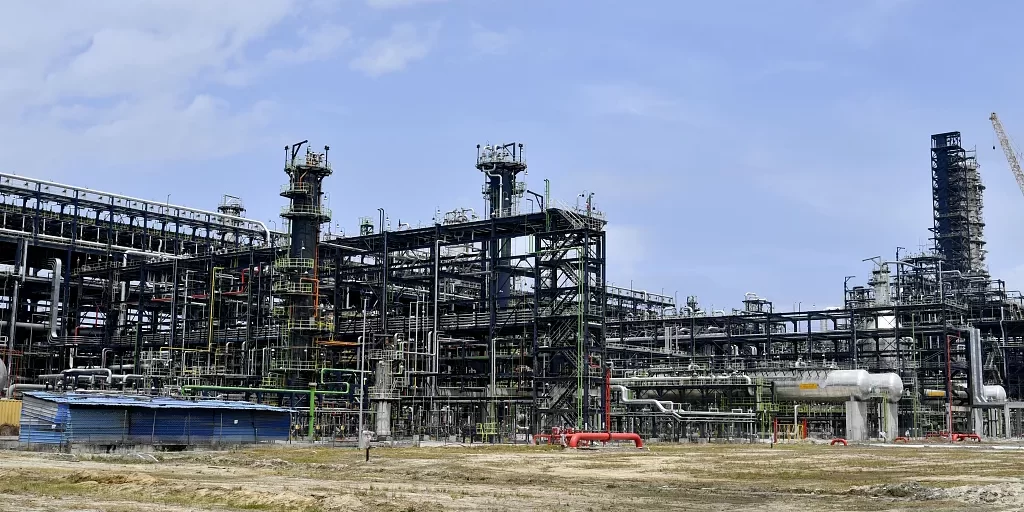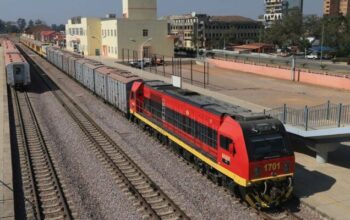The full ramp-up of Africa’s largest oil refinery, a landmark moment for crude and fuel markets both regionally and beyond, is still a long way off.
The Dangote plant in Nigeria just concluded a deal to receive six million barrels of crude from December, an indication that commercial activity is close to getting underway. However, the facility is still several months from full-scale production of fuels, including high-quality gasoline, according to analysts tracking the refinery’s development.
Built by billionaire industrialist Aliko Dangote, oil market watchers have followed the construction of the 650,000 barrel-a-day facility through years of delays. Its enormous size means the refinery will have wide-reaching consequences for crude and fuel markets though precisely when remains to be seen.
“The refinery is likely to be started up in a phased fashion, with the crude distillation unit being the first unit,” said Ronan Hodgson, an analyst at Facts Global Energy.
The consultancy expects several months of production of fuel oil and other lower-quality petroleum products, with Euro V a reference to European emissions standards gasoline not forecast until the second half of next year.
Close to Lagos, the nation’s commercial hub, the refinery was officially opened back in May by former President Muhammadu Buhari amid uncertainty about how fast it would really be able to ramp up.
That same month, Nigeria’s state oil company almost tripled the pump price of gasoline after the new President, Bola Tinubu, said he’d fulfill a pledge to scrap domestic fuel subsidies.
“During the initial phase, yields will be highly dependent on feedstock choice,” said James McCullagh, executive director at Citac Africa Ltd., a firm specializing in the continent’s downstream oil industry. “But there will likely be exports of some straight-run products, namely fuel oil and naphtha.”
The plant’s financiers include numerous banks, and it is “too big to fail, so it is a question of when, not if, it will begin commercial operations in some form,” he said.
Several traders said they were unclear about the timeline for Dangote’s full ramp-up but that they weren’t counting on it happening in the next few months.
Devakumar Edwin, group executive director of Dangote Industries Ltd., said it would be incorrect to assert that a full ramp-up will take months or that the first phase would entail mostly naphtha and fuel oil.
“As the saying goes, the proof of the pudding is in the eating,” he said.
The facility is building up crude stocks in order to carry out test runs, but the start of commercial production remains unclear, according to two officials from NNPC who asked not to be identified. NNPC is the main supplier of domestic crude to the refinery.
While the plant should be able to run a full range of crude grades, its initial intake is expected to include major Nigerian streams such as Bonny Light, Forcados, and Egina, the two officials said.
There’s not likely to be a “substantial, useful product” from the Dangote refinery in December, Hodgson said. Looking further forward, gasoline should make up to half of the refinery’s product yield.
![]()




